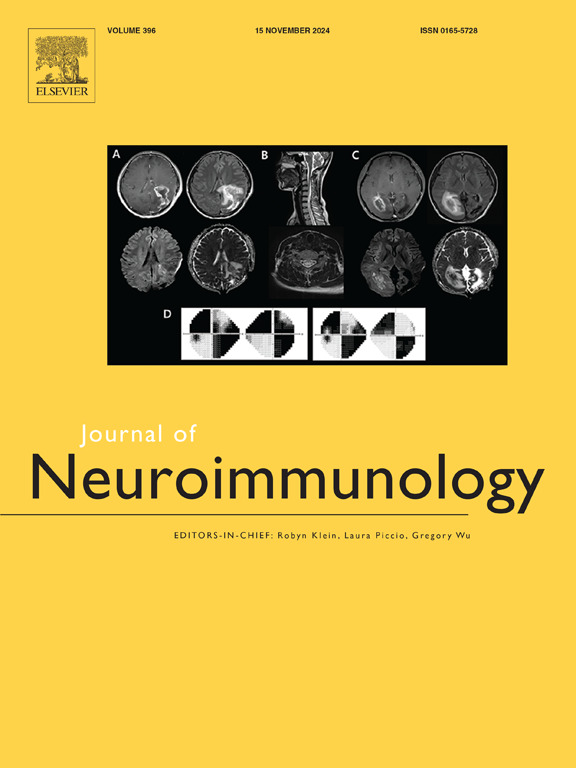NOD-like receptor protein 3 inhibition by MCC950 improves the cognitive function of rats with sepsis-associated encephalopathy
IF 2.9
4区 医学
Q3 IMMUNOLOGY
引用次数: 0
Abstract
This study aimed to investigate the effects of MCC950 in a rat model of sepsis-associated encephalopathy (SAE). Adult male rats were randomly assigned to 12 groups according to the surgery or treatment received and evaluation times. The SAE model was established using the cecal ligation and puncture (CLP) method. Intraperitoneal injections of normal saline (10 mL/kg) or MCC950 (10 mg/kg) were administered 30 min pre-surgery and daily post-surgery. Changes in survival rates, weight loss, and heart rate were assessed at four time points, and neurobehavioral changes were evaluated using the composite neural reflex function scores, light/dark box test, and open-field test (OFT). Compared with the SAE group, the SAE + MCC950 group had significantly higher survival rates (P < 0.05), lower postoperative weight loss rates (P < 0.05), and higher neurological function scores (P < 0.05); the SAE + MCC950 group also traveled further and crossed the central area more frequently in the OFT (P < 0.05), spent more time in the light compartment at different time points (P < 0.05), and exhibited a lower heart rate at different time points (P < 0.05). MCC950 treatment significantly improved cognitive function and related indices in the SAE rats.

求助全文
约1分钟内获得全文
求助全文
来源期刊

Journal of neuroimmunology
医学-免疫学
CiteScore
6.10
自引率
3.00%
发文量
154
审稿时长
37 days
期刊介绍:
The Journal of Neuroimmunology affords a forum for the publication of works applying immunologic methodology to the furtherance of the neurological sciences. Studies on all branches of the neurosciences, particularly fundamental and applied neurobiology, neurology, neuropathology, neurochemistry, neurovirology, neuroendocrinology, neuromuscular research, neuropharmacology and psychology, which involve either immunologic methodology (e.g. immunocytochemistry) or fundamental immunology (e.g. antibody and lymphocyte assays), are considered for publication.
 求助内容:
求助内容: 应助结果提醒方式:
应助结果提醒方式:


